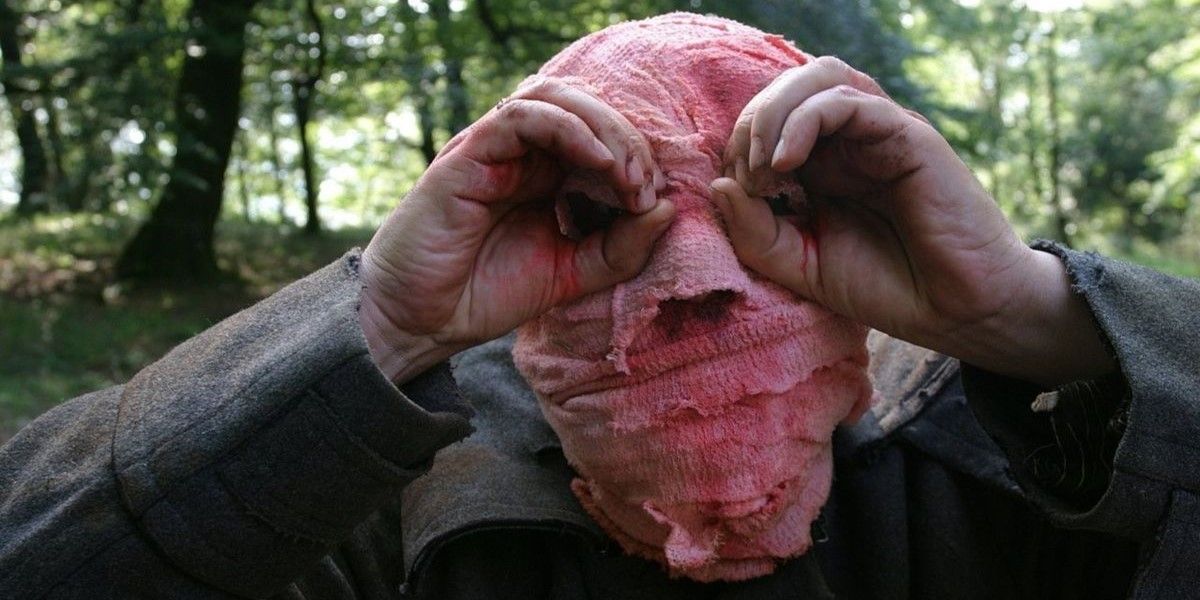The Power of Time Travel in Science Fiction
Time travel has long captivated the imagination of audiences, often serving as a vehicle to explore deeper philosophical questions. In many stories, the concept of free will is central, but the most compelling narratives tend to focus on the opposite: the realization that one cannot change the past or alter the future. These tales often depict characters trapped in an unbreakable loop of cause and effect, where every attempt to change events only reinforces the inevitability of what has already happened. This idea is powerfully illustrated in Nacho Vigalondo’s 2007 filmTimecrimes, a low-budget Spanish-language masterpiece that continues to resonate with sci-fi fans.
A Thriller That Captures the Horror of Time Loops
Timecrimesbegins with a seemingly simple act of curiosity that spirals into a tense, hour-long nightmare. The story follows Héctor, a middle-aged man living in the quiet Spanish countryside. He is introduced as a curious and somewhat bored individual who carries binoculars everywhere. One day, while observing the woods from his backyard, he witnesses a young woman undressing—something he should not see. This moment becomes the catalyst for a series of events that unravel his reality.
As Héctor investigates further, he encounters a mysterious figure wrapped in pink bandages. Fleeing in fear, he stumbles upon a scientific facility where a technician urges him to hide inside a strange, tub-like machine. This accidental time travel sends him back by about an hour, setting off a chain of events that forces him to relive the same moments from different perspectives.
A Minimalist Approach That Creates Maximum Impact
Despite its modest budget of around $2.6 million,Timecrimesstands out as a remarkable example of how a clever idea can create a powerful narrative. The film uses tight storytelling and minimal locations to craft a claustrophobic, closed-world experience. The audience is drawn into Héctor’s psychological struggle as he tries to make sense of his situation, constantly questioning whether he can change the outcome of his actions.
The film operates on a strict predestination paradox model, where characters cannot change the past. Instead, their future actions are the very cause of the events they experience. This fatalistic approach strips away the illusion of free will, creating a chilling exploration of destiny and consequence.
A Psychological Trap of Unavoidable Fate
One of the most terrifying aspects ofTimecrimesis the slow realization that Héctor is trapped in a loop. Each decision he makes seems like a step toward escaping his fate, but instead, it leads him closer to the events he is trying to prevent. The film uses visual repetition and off-screen tension to build suspense, making the audience feel the same dread as Héctor.
Director Nacho Vigalondo, who also plays a scientist in the film, emphasizes the emotional toll of knowing what is coming but being powerless to stop it. His performance adds depth to the narrative, highlighting the psychological strain of being caught in a cycle that cannot be broken.
A Film That Challenges the Notion of Bigger is Better
Timecrimesmay not have the mainstream recognition of some of its genre peers, but it deserves to be considered a classic. Its success lies in its simplicity and focus on ideas rather than spectacle. Unlike many high-budget sci-fi films,Timecrimesavoids complex explanations of time travel and instead centers on the consequences of meddling with time.
Vigalondo’s philosophy of prioritizing strong storytelling over big production values is evident throughout the film. The time machine itself is just a large metal tank filled with liquid, and the film never explains how it works. Instead, it focuses on the impact it has on Héctor, making the story both grounded and deeply human.
A Legacy That Endures
Even 18 years after its release,Timecrimesremains a hidden gem for sci-fi enthusiasts. Its minimalist approach and clever writing continue to captivate audiences, proving that a great story doesn’t need a massive budget to leave a lasting impression. For those who have seenDarkor other time-travel narratives,Timecrimesoffers a unique perspective on the same unsettling question: What if every step you take to escape your destiny only leads you closer to it?



